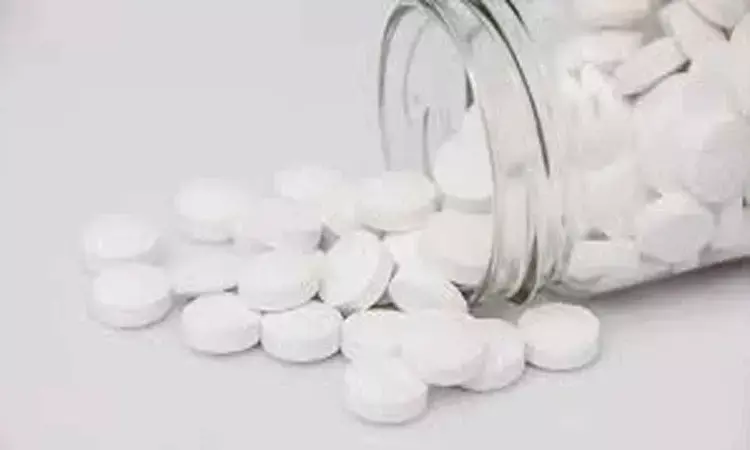- Home
- Medical news & Guidelines
- Anesthesiology
- Cardiology and CTVS
- Critical Care
- Dentistry
- Dermatology
- Diabetes and Endocrinology
- ENT
- Gastroenterology
- Medicine
- Nephrology
- Neurology
- Obstretics-Gynaecology
- Oncology
- Ophthalmology
- Orthopaedics
- Pediatrics-Neonatology
- Psychiatry
- Pulmonology
- Radiology
- Surgery
- Urology
- Laboratory Medicine
- Diet
- Nursing
- Paramedical
- Physiotherapy
- Health news
- Fact Check
- Bone Health Fact Check
- Brain Health Fact Check
- Cancer Related Fact Check
- Child Care Fact Check
- Dental and oral health fact check
- Diabetes and metabolic health fact check
- Diet and Nutrition Fact Check
- Eye and ENT Care Fact Check
- Fitness fact check
- Gut health fact check
- Heart health fact check
- Kidney health fact check
- Medical education fact check
- Men's health fact check
- Respiratory fact check
- Skin and hair care fact check
- Vaccine and Immunization fact check
- Women's health fact check
- AYUSH
- State News
- Andaman and Nicobar Islands
- Andhra Pradesh
- Arunachal Pradesh
- Assam
- Bihar
- Chandigarh
- Chattisgarh
- Dadra and Nagar Haveli
- Daman and Diu
- Delhi
- Goa
- Gujarat
- Haryana
- Himachal Pradesh
- Jammu & Kashmir
- Jharkhand
- Karnataka
- Kerala
- Ladakh
- Lakshadweep
- Madhya Pradesh
- Maharashtra
- Manipur
- Meghalaya
- Mizoram
- Nagaland
- Odisha
- Puducherry
- Punjab
- Rajasthan
- Sikkim
- Tamil Nadu
- Telangana
- Tripura
- Uttar Pradesh
- Uttrakhand
- West Bengal
- Medical Education
- Industry
Use dexamethasone over methylprednisolone, says Health Ministry in new COVID protocol

Union Health Secretary Preeti Sudan has forwarded the updated protocol with all states and Union Territories to make necessary arrangements for availability and use of the updated protocol and dexamethasone at the institutional level also.
New Delhi: The Union Ministry of Health and Family Welfare on Saturday released an updated clinical management protocol for managing Covid-19 cases, advising use of dexamethasone as an alternative to methylprednisolone for managing moderate to severe cases of the disease.
Keeping pace with evolving knowledge about Covid-19, especially in terms of effective drugs, the ministry released the updated clinical management protocol in which some changes have been made after considering the latest available evidence and after expert consultation.
Dexamethasone is a corticosteroid drug used in a wide range of conditions for its anti-inflammatory and immunosuppressant effects. The drug has been tested in hospitalised patients with Covid-19 in the recovery clinical trial and was found to have benefits for critically-ill patients. It has been shown to reduce mortality by about one-third for patients on ventilators, and by about one-fifth for patients being maintained on oxygen therapy.
The drug is also a part of the National List of Essential Medicines (NLEM) and is widely available.
Union Health Secretary Preeti Sudan has forwarded the updated protocol with all states and Union Territories to make necessary arrangements for availability and use of the updated protocol and dexamethasone at the institutional level also.
The last update to the clinical management protocol was done on June 13.
As per the updated protocol, Covid-19 patients reporting to various Covid treatment facilities have reported signs and symptoms like fever, cough, fatigue, shortness of breath, expectoration, myalgia, rhinorrhea, sore throat and diarrhoea.
Loss of smell (anosmia) or loss or taste (ageusia) preceding the onset of respiratory symptoms has also been reported. Older people and immune-suppressed patients in particular may present with atypical symptoms such as fatigue, reduced alertness, reduced mobility, diarrhoea, loss of appetite, delirium, and absence of fever,the protocol mentions.
"Children might not have reported fever or cough as frequently as adults," it says.
As per data from the Integrated Health Information Platform (IHIP) or Integrated Disease Surveillance Programme (IDSP) portal case investigation forms for Covid-19 of 15,366 people as on June 11, the details on the signs and symptoms reported are fever (27 per cent), cough (21 per cent), sore throat (10 per cent), breathlessness (8 per cent), weakness (7 per cent), running nose (3 per cent) and others 24 per cent.
The major risk factors for severe disease are age more than 60 years (increasing with age), underlying non-communicable disease (NCDs) such as diabetes, hypertension, cardiac disease, chronic lung disease, cerebro-vascular disease, chronic kidney disease, immune-suppression and cancer.
Medical Dialogues Bureau consists of a team of passionate medical/scientific writers, led by doctors and healthcare researchers. Our team efforts to bring you updated and timely news about the important happenings of the medical and healthcare sector. Our editorial team can be reached at editorial@medicaldialogues.in.


